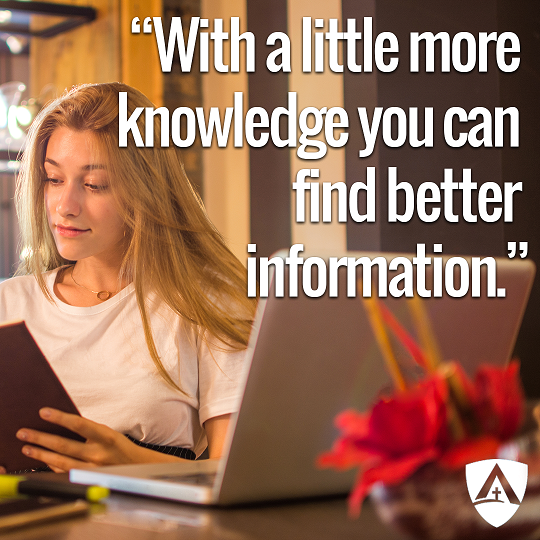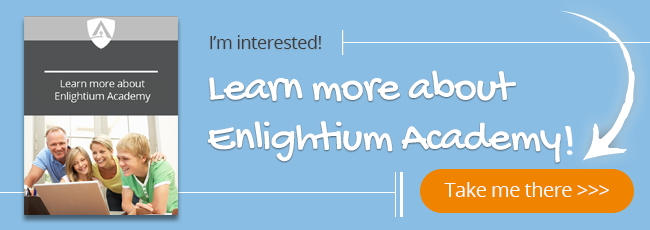Writing Process: Conducting and Using Research
BONUS STEP: CONDUCTING AND USING RESEARCH
I’m going to start at the beginning with this, since, in my experience, finding good research is a major stumbling block for students. Even though most of my students are incredibly technologically literate and spend a lot of time online, it is a mistake for teachers (or students) to assume that this is the same thing as conducting research.
This is the final entry in a series concerning the writing process. You can review the entire series at this link.
 What is a credible source?
What is a credible source?
Here is the deal: the Internet is a wonderful and confusing place. It is full of information and discussions, and people who might never meet in real life communicating. Now, as you all know from social media, one of the interesting things about the Internet is that you can share your opinions with many people. On the flip side, this means that a lot of things you find on the Internet are personal opinion. If anyone can post, that means not everything is true. When you are writing a research paper, the information you use has to meet a certain standard of truthfulness.
So how do you decide what meets this standard? Here are some questions to ask:
- Who is the author? - Is it someone who is an expert in the area? Someone who is well regarded in the field? (A blog article by a random person is not going to cut it.)
- Who is the publisher? - What organization, magazine, etc is publishing the information? Is it a group that is well regarded in the field? Are they professional?
- Be cautious of parent websites. A parent website is a website or group that owns the information published on another website. For example, if you find an article about racism that was published by a group affiliated with a white supremacist group, it might lack credibility.
- .edu, .gov, and .org sites are always preferable to .com sites, as they have clear legal affiliations with educational institutions, the government, or a specific organization.
- What are the author’s sources? - A credible author will tell you where his or her information comes from (which is incidentally why you have to cite your sources). If your source does not cite its sources, it is suspect.
- What is the general appearance? - Does the article have a generally professional appearance? Are there clear editing errors? Appearance is not everything, but if it’s a peer-reviewed article that has gone through a thorough editing process, it will look somewhat polished.
- What is the bias? - Some articles are expected to have a slant. For example, if I am reading a news article from a site that I know has a certain political opinion, I expect there to be some bias. However, the majority of your sources should be as neutral as possible.
- The reality is that very little in this world is completely unbiased, and often that bias is unintentional, or is the result of cultural or social bias. It is important to be wary when reading, and to analyze the perspective each piece of writing comes from, and what possible biases might be in effect.
- Business websites can look very professional and credible, but never forget that the goal of the website is to sell you a product.
- Does the information on this site seem reasonable? - This is not a fail-safe measure, because you have your own biases, but common sense is one of your tools. Does this information match other sources of information on the issue? Does it make any sense?
“But what about books?” you ask. The same checks apply to books and any printed sources. You shouldn’t assume anything printed is true any more than you should assume anything on the Internet is true.
 How do can you find sources?
How do can you find sources?
First off, there is something to be said for print sources, and libraries are a really wonderful thing. If you are conducting research at a library, you have several choices:
- Browse and hope you run across something useful. - If you know your library well, this could work…
- Look up your topic in the library index and then find the correct section. - In this digital age, this is much simpler than it sounds. You can research keywords online, and it will give you the index number. You can also often pre-order the books you want and pick them up at the front desk.
- Ask a librarian. - We are conditioned to worry we are inconveniencing others by asking for help, but librarians are literally research experts. If you are not sure where to start, they can help you! They can also often give you pointers about online research. Use your local experts!
Now, if you spend a lot of time on the Internet, you probably know how to find information. However, with a little more knowledge you can find better information.
- Google - Considering how much people use Google, it’s surprising how few people understand how Google works. Knowledge is power, and in this case, understanding how Google works will make your searches more effective.
- Google is a search engine that comes up with options for the words you’ve typed in based on an algorithm. There is no one on the other side answering your questions. This is not bad; it’s a very sophisticated algorithm. Here’s what you should know: If you are not finding good sources, you can change the word combination you are searching. Try using synonyms, and you may come up with different results.
- Google lets you specify the type of site you are looking for. If you go to Settings>Advanced Search, there are all sorts of fun options, including the domain, i.e. .org, .edu, or .gov.
- Google Scholar (Find it by typing Google Scholar into Google), is a subsite that will search only scholarly articles.
- Databases - A lot of the best articles have to be paid for, which is not ideal, but also provides funding for the people who write these articles to keep writing them. The good news is that there are databases (like, for example, university library databases) that pay for these articles. If you have access to a university database, that’s great. If you don’t the good news is that your local library probably has a database of online sources.
- Wikipedia - I’m going to give Wikipedia some special attention. First of all don’t use Wikipedia as a source. Wikipedia allows anyone to contribute to and edit an article. And while most articles are edited by enough people that they are mostly accurate, there is no actual guarantee. However, if you scroll to the bottom of the page, you should see a list of sources. This can be a great starting place for your research.
Organizing Your Research
If you are writing a research paper, it can be very tempting to organize the paper based on sources: in other words, to write one paragraph per source, basically summarizing what the source says. This is not the goal of using a source. Instead, identify similar ideas, exactly the same way you would if you were just working of a brainstorming list. DO NOT, start writing your paper and simply adopt the organization of the texts you are working with. The purpose of a research paper is synthesis, not summary.

